JICA is supporting Google's Global Sustainability Accelerator, a startup assistance program. This program is aimed at supporting innovative ideas for sustainable development in collaboration with Creww, a company which supports startups and entrepreneurs in business growth.
*Global Sustainability Accelerator
Global Sustainability Accelerator is a six-month accelerator program that supports the global expansion of Japan startups that promote sustainability. With the support of JICA, the program was organized by Google for Startups (the company’s startup support program), and Creww Inc., operator of one of the largest open innovation platforms in Japan. The first Global Sustainability Accelerator program was held from March to August 2023.
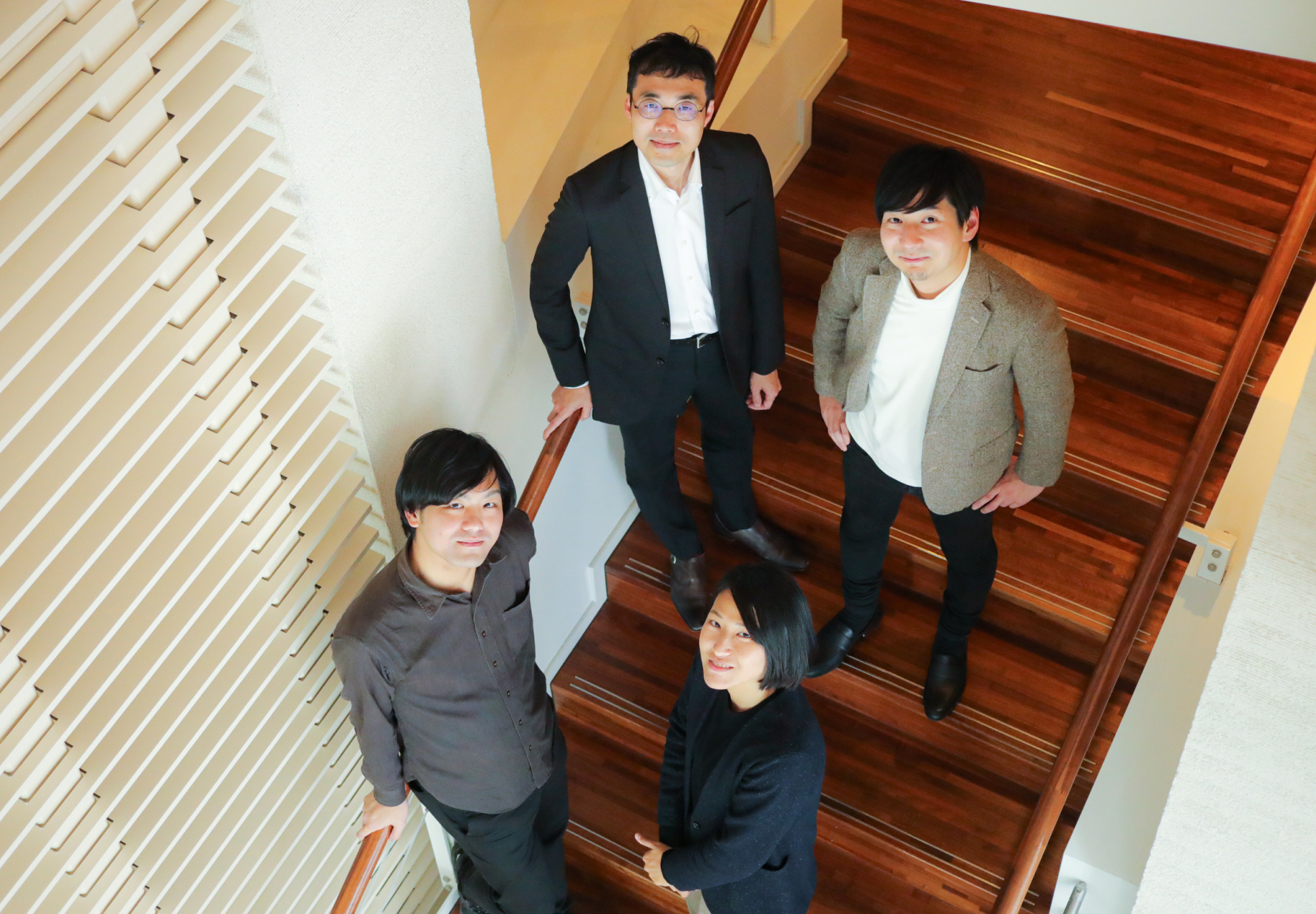
We spoke with a number of the participants, who looked back on the Global Sustainability Accelerator program from different perspectives. Clockwise from the top left: Otsuka Takahiro of JICA's Global Environment Department, Kato Kenta of Creww Inc., Tsuboi Aya of Sunda Technology Global Co., Ltd., and Takeuchi Shiki of Inoka Co., Ltd.
Interview Participants
Kato Kenta
Director, Office of the President, Creww Inc.
Oversees operations of the Global Sustainability Accelerator
Creww - Building an age of bravery (https://creww.in/global/en)
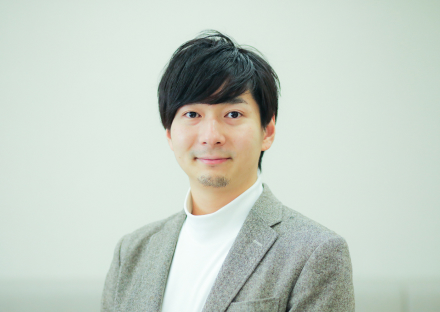
Tsuboi Aya
CEO, Sunda Technology Global Co., Ltd..
Startup participating in the Global Sustainability Accelerator program
Manufactures and sells Automated water fee collection system for handpump maintenance
SUNDA|Solving Africa's water issues through engineering (sundaglobal.com)
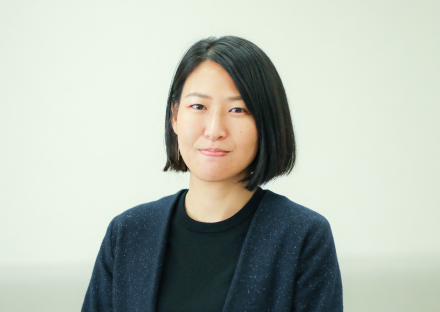
Takeuchi Shiki
Chief Operating Officer, Innoqua Co., Ltd.
Startup participating in the Global Sustainability Accelerator program
Researches and develops "Environmental Transfer Technology" to enable research on oceans and rivers in urban spaces
Innoqua
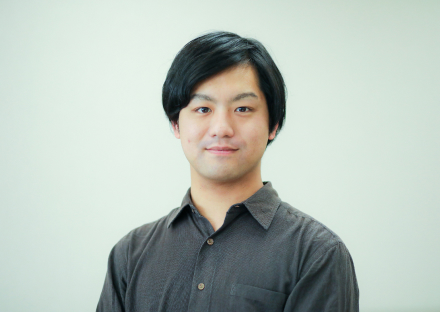
Otsuka Takahiro
Member of JICA's Water Resources Group, Global
Environment Department
Supports the efforts of startups in the water resources and water supply sector through the Global Sustainability Accelerator program
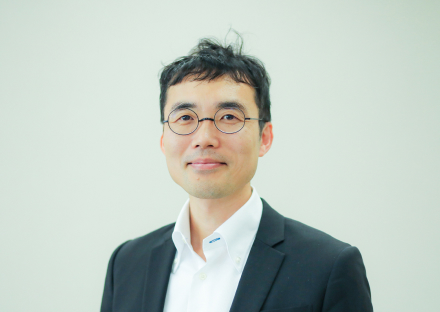
A Unique Approach to the Challenges of the Developing Countries
Otsuka:
JICA has been co-creating with various partners, and decided to support the "Global Sustainability Accelerator,” a startup assistance program sponsored by Google for Startups and Creww. Some people may be surprised to hear that JICA is collaborating with Google and Creww in support of startups. Mr. Kato, could you describe how the program started from Creww’s perspective?
Kato:
Our vision at Creww is of "building an age of bravery," and we operate accelerator programs that mainly support startups. Just over two years ago, we decided to develop a new accelerator program together with Google for Startups. They wanted to strengthen their support for Japan startups as part of their aspiration to play a global role. We narrowed the scope of activities of the supported startups to the field of ESG (Environmental, Social, and Governance), and decided to target those that can solve social issues in developing countries. At the time, it seemed that there were very few accelerator programs in Japan supporting startups that wanted to expand globally in the field of ESG.
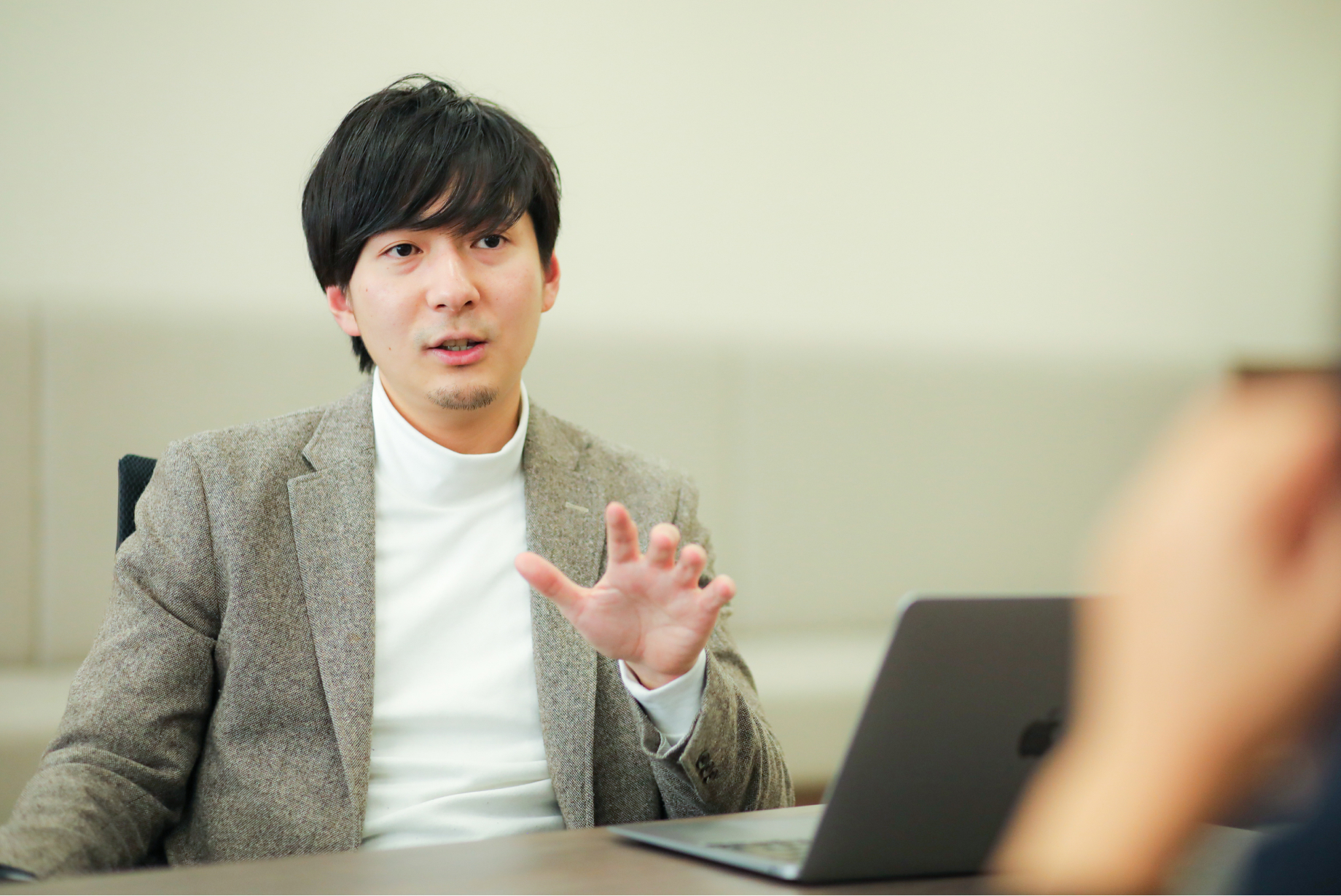
“When we started this program, Creww was the first Google for Startups partner company in Japan,” says Kato.
Otsuka:
There are hurdles in doing business in developing countries from the perspective of ensuring profitability and sustainability. Did Creww or Google have any concerns while designing the program?
Kato:
Both Creww and Google for Startups wanted to expand into developing countries, but there were few examples of collaboration with startups in such countries, and we had no network. That’s why we thought of collaborating with JICA, which has a wealth of business experience in developing countries. We narrowed the themes to three areas: "electricity," "food conservation," and "water resources and water supply," among others, keeping in mind the areas in which JICA has strengths.
Otsuka:
Those are the major areas of development cooperation that JICA is engaged in. JICA has implemented approximately 1,700 development cooperation projects in 139 countries and regions (as of FY2022). We were eager to see start-ups take advantage of this network, so this collaboration was a challenge that JICA was keen to take on.
Kato:
The six-month accelerator program was designed to help ten selected startups conclude contracts with overseas companies and local governments. We supported workshops and development of overseas business partners, and as a result, we were able to reach 27 local partners, including local governments, and 20 local companies in 16 countries and regions. Business contracts have been concluded in four regions, and discussions are ongoing in six other regions. During the program period, seven out of the ten startups conducted fundraising activities, and we were also involved in their support activities. JICA's local offices also provided various types of support.
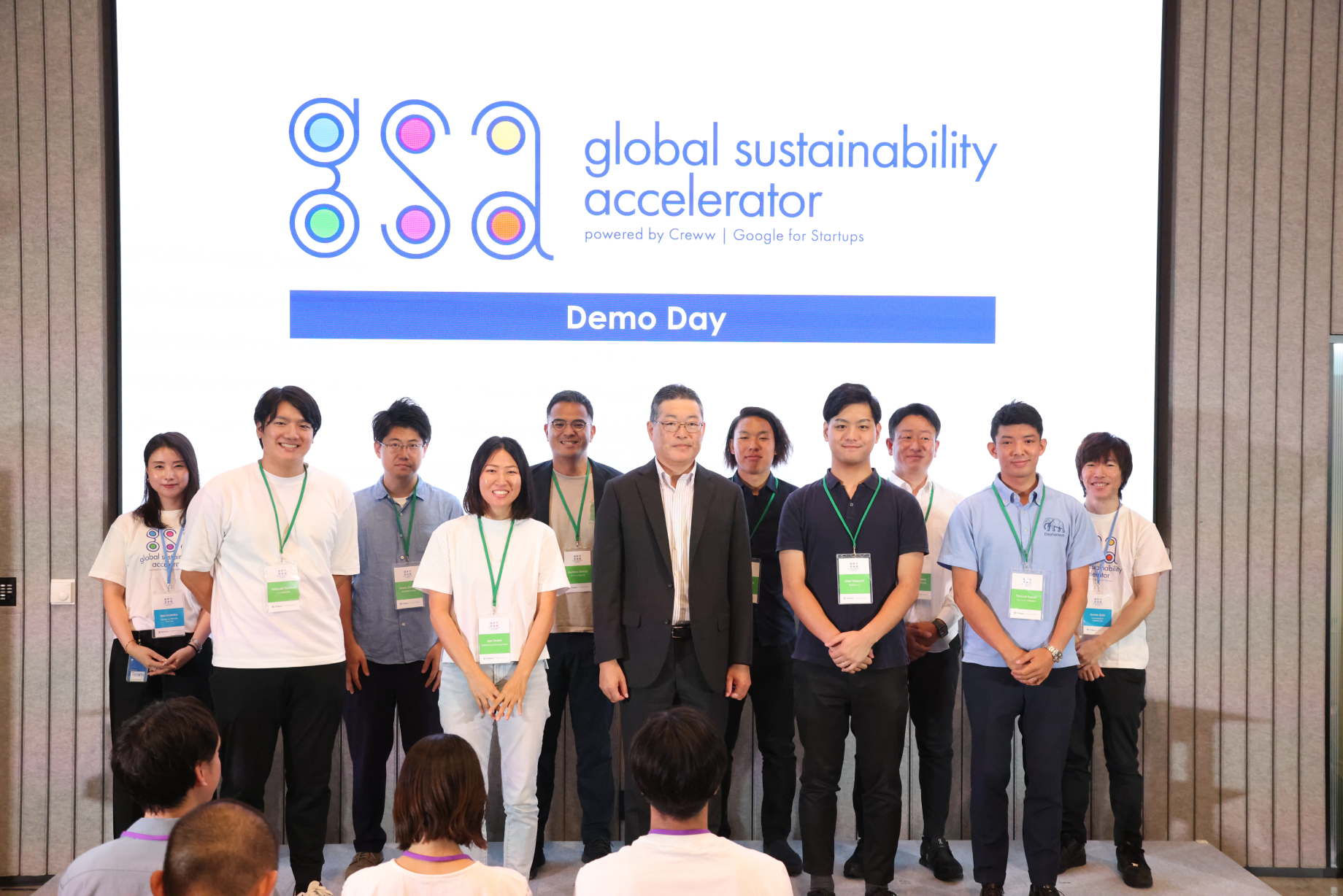
Startup members who participated in Demo Day announcing the results of the "Global Sustainability Accelerator" program.
A Big Step Towards Global Expansion
Otsuka:
We also have representatives from two companies involved in developing businesses in the field of "water resources and water supply." I’ll begin with Mr. Shiki Takeuchi of Innoqua. How did you come to participate in the program and what did you get out of it?
Takeuchi:
Innoqua is an “environmental transfer venture." We develop various R&D and educational projects using “environmental transfer technology” to reproduces marine ecosystems in land-based aquariums. One of the major areas we are working on is the preservation of coral reef ecosystems, which is becoming an increasingly serious issue in Southeast Asia. The maritime region around the Philippines and Indonesia is known as the “Coral Triangle,” and is home to more than half of all coral species on the planet.
When we want to know whether a certain chemical is effective in helping to preserve the ecosystem, we can't just dump it into the ocean, because its effects may be irreversible. But we can test the effect of the chemical in an aquarium that reproduces the exact same ecosystem. Our goal is to develop business in Southeast Asia that utilizes our technology, so we participated in this program as a first step.
We never expected to receive such detailed guidance—from preparing an investor presentation in English to approaching multinational companies in Europe, America, and Asia. JICA's office in Indonesia office gave us information about what local research institutes and the government are working on regarding marine biodiversity, so we were able to lay the foundation for global expansion. In fact, this year we are planning to open an Innoqua Asia office based in Malaysia.
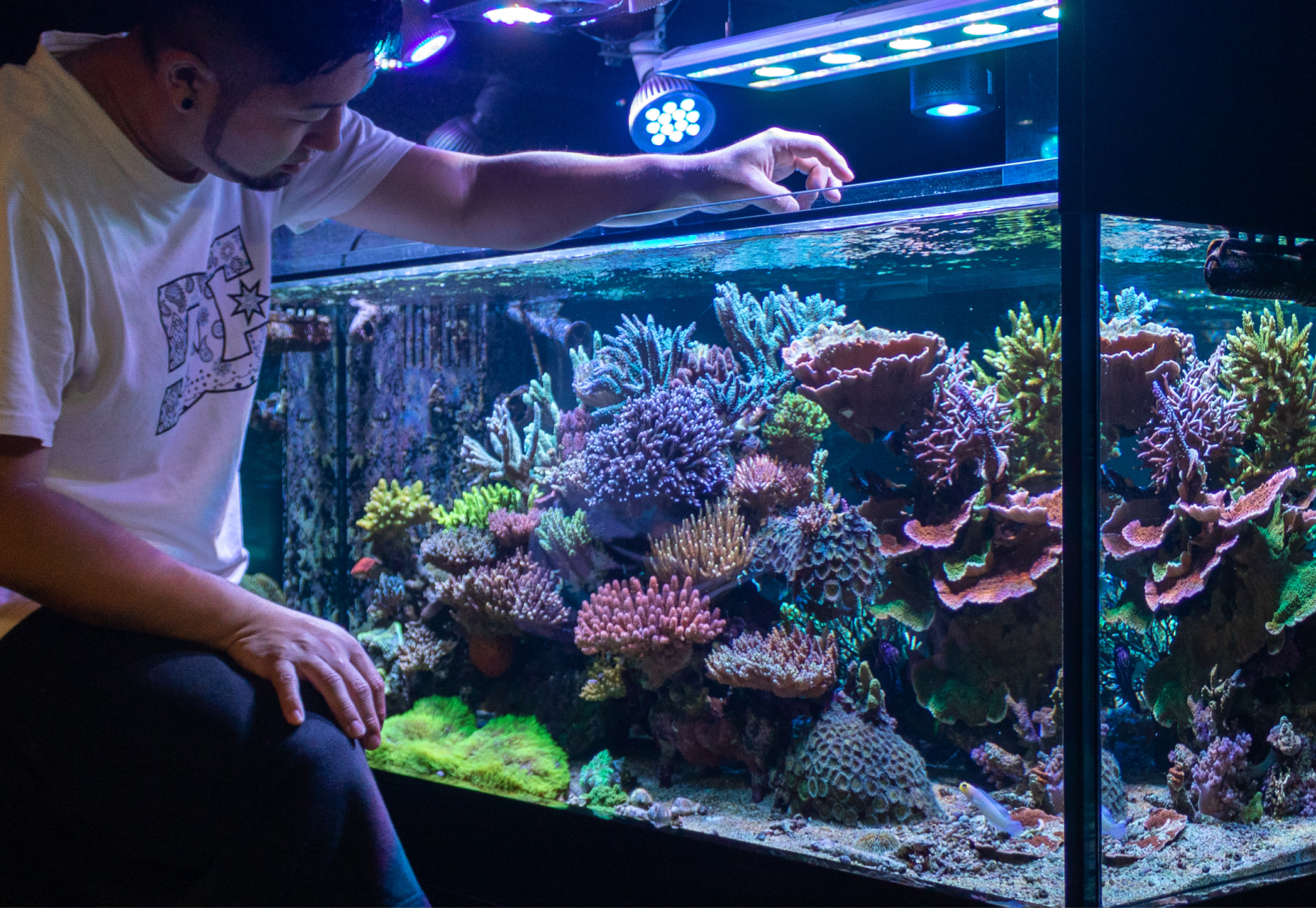
This coral reef ecosystem recreated in a tank is an example of Innoqua’s environmental transfer technology.
Kato:
I'm really pleased to hear how far your business has progressed.
Takeuchi:
We’re also looking at Palau, an island nation in the Pacific that is focused on marine biodiversity. It has strict regulations on the use of sunscreen, for example. With the cooperation of the JICA local office, we are exploring ways to collaborate with the Palauan government in the hope that our technology can provide more scientific data.
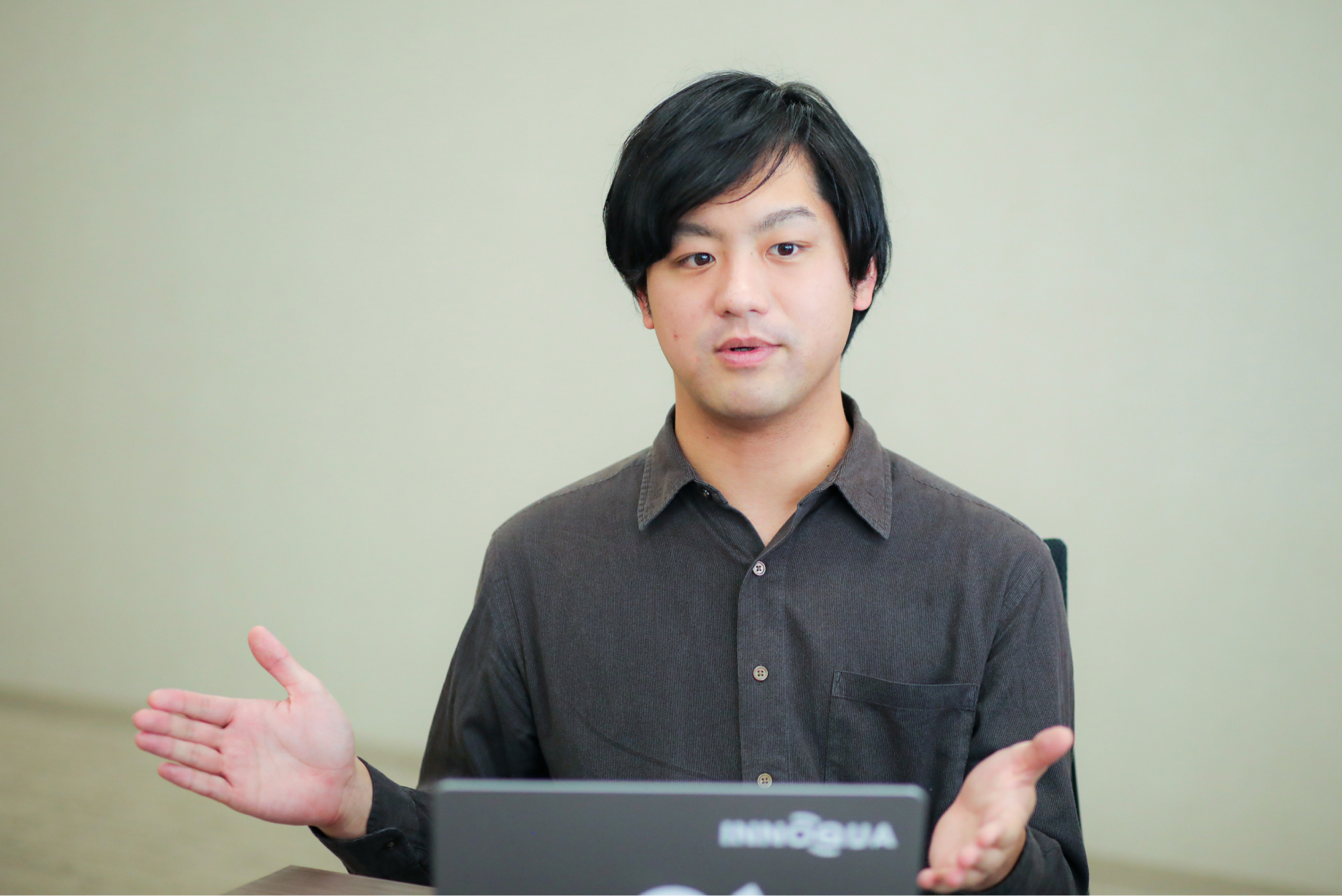
Takeuchi Shiki says that being able to work on various initiatives in a laboratory that reproduces ecosystems is a shortcut to finding solutions to marine biodiversity issues. He expressed his enthusiasm for playing a role in solving social issues by connecting companies and researchers.
Ties to Fundraising
Otsuka:
Aya Tsuboi is another participant, representing Sunda Technology Global, which manufactures and sells prepaid automatic fee collection systems for sustainable well management to improve access to safe water in Uganda. Ms. Tsuboi, could you give us a recap of the program from your perspective?
Tsuboi:
Hand pump boreholes are important water sources in rural Uganda, but many are broken and unusable. They are rarely properly repaired because it’s difficult to collect the costs of repairing them from the local community. We came up with "SUNDA," a prepaid/pay-as-you-go type automatic water fee collection system. The SUNDA device can be installed on existing hand pumps, with an ID tag distributed to each household. By inserting the ID into the device when the hand pump is used, water can be drawn for a pre-paid fee. This allows the village community to collect fees in a fair manner and pay for any necessary repairs. The system utilizes mobile money, which is widespread in Uganda.
Prior to the startup assistance program, which began in March 2023, we had already installed 150 SUNDA units on hand pumps in Uganda. When we learned about this program, we were struggling to raise funds to move from this trial stage to the next stage of expanding our business outside of Uganda. We needed more knowledge in order to expand our business and thought the Accelerator Program might help us acquire it.
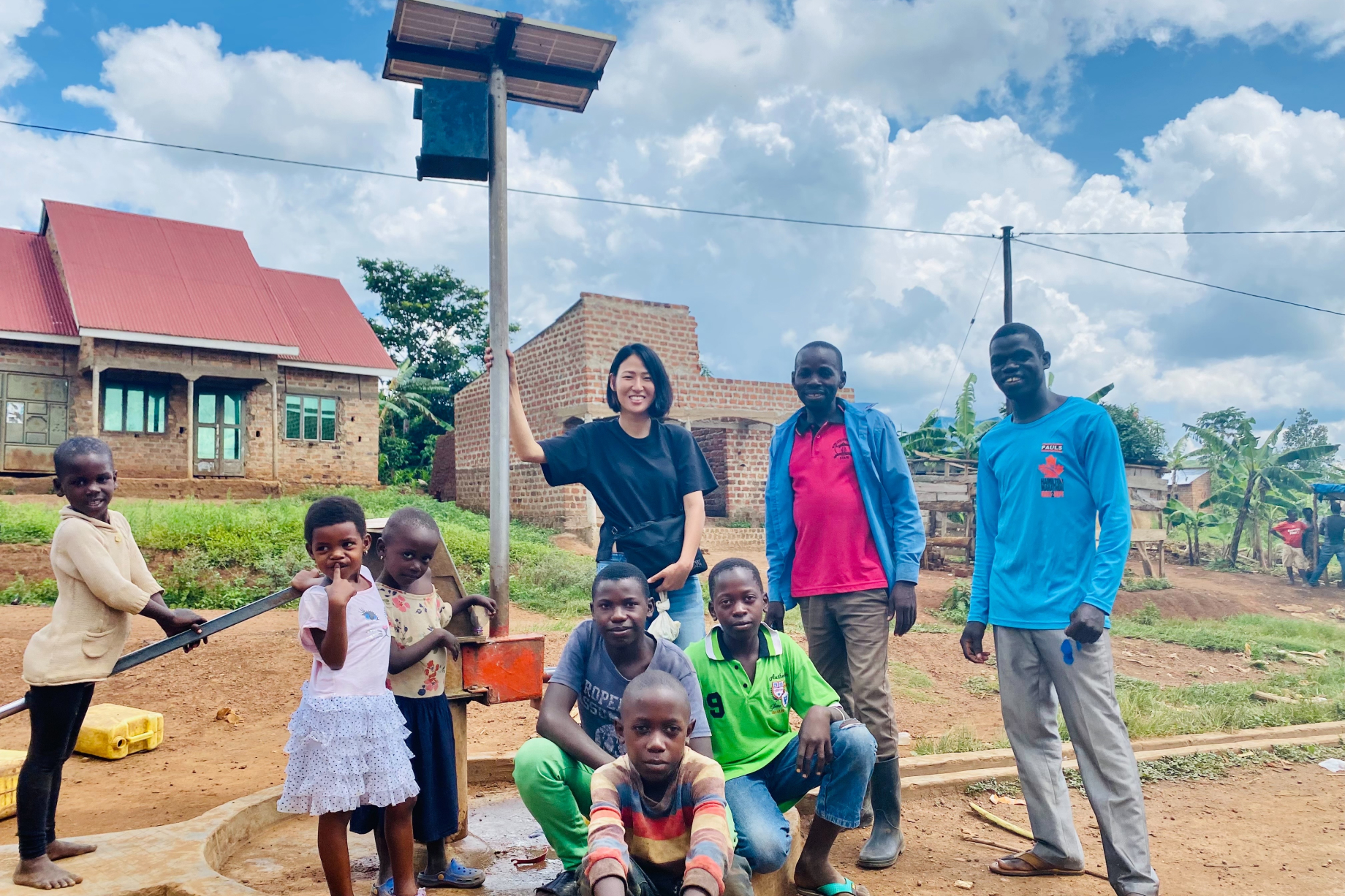
Tsuboi Aya (center) with community members in a village where the first Sunda unit was installed during Tsuboi’s JICA volunteer period in 2018. When the ID tag is inserted into the orange box and identified, the water can be drawn.
Kato:
The timing of the program was just right, and you were successful in raising funds.
Tsuboi:
In the fundraising presentations, we heard a variety of opinions that were also useful in brushing up the content of our business. It was an opportunity not only for JICA's Uganda office, but also for people from JICA offices in other countries to participate and learn about SUNDA. I hope we can continue to use this network in the future.
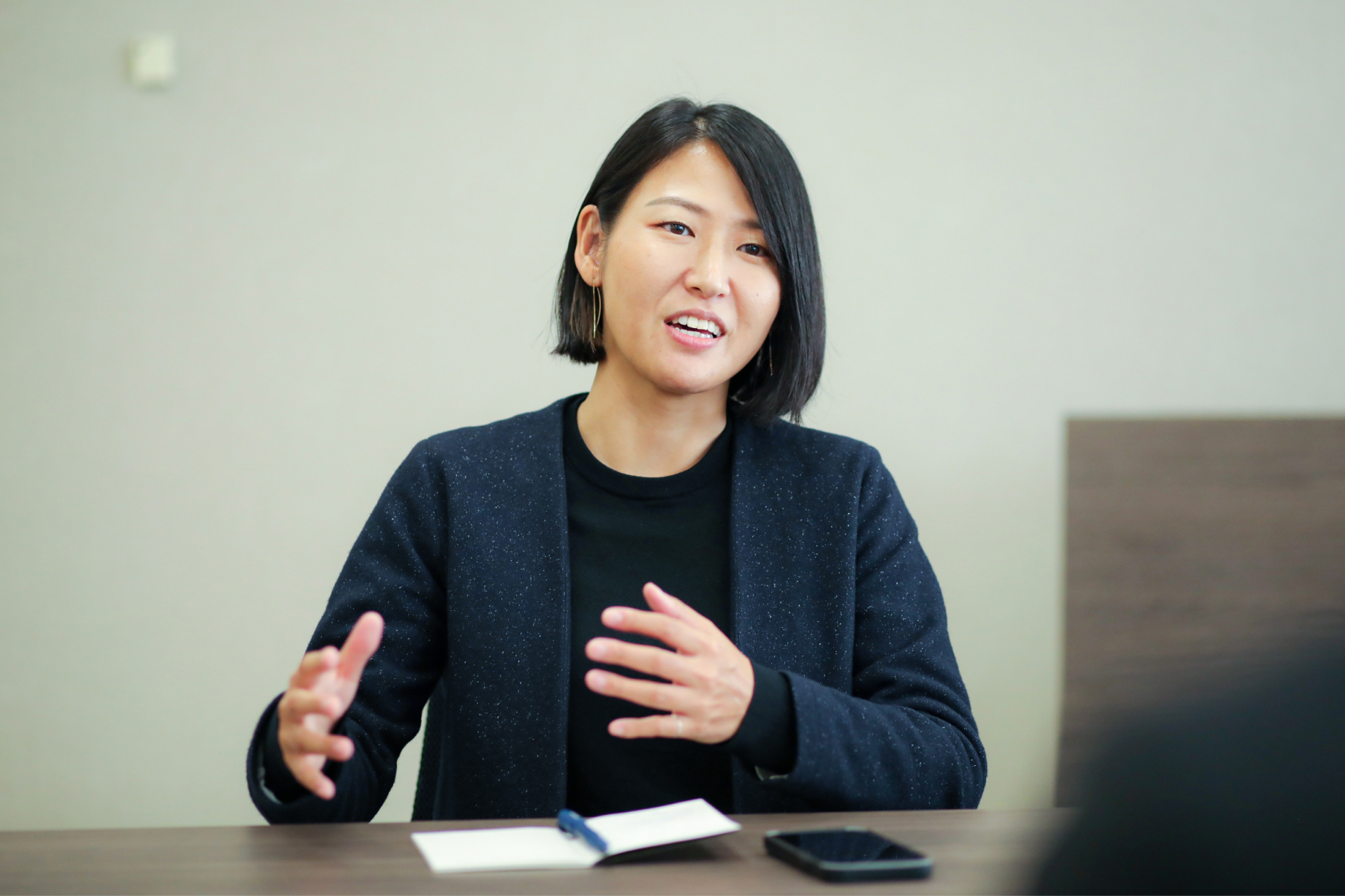
Tsuboi Aya started the automated water fee collection business after serving as a JICA Overseas Cooperation Volunteer in Uganda. With Sunda Technology Global, she aims to install 350,000 SUNDA devices in 50 percent of African countries over the next 10 years.
Creating New Value Together
Otsuka:
It is truly meaningful for JICA to be able to work with startups to tackle issues that have been difficult to tackle in the past. Through programs like this, we hope to create new value together with various actors.
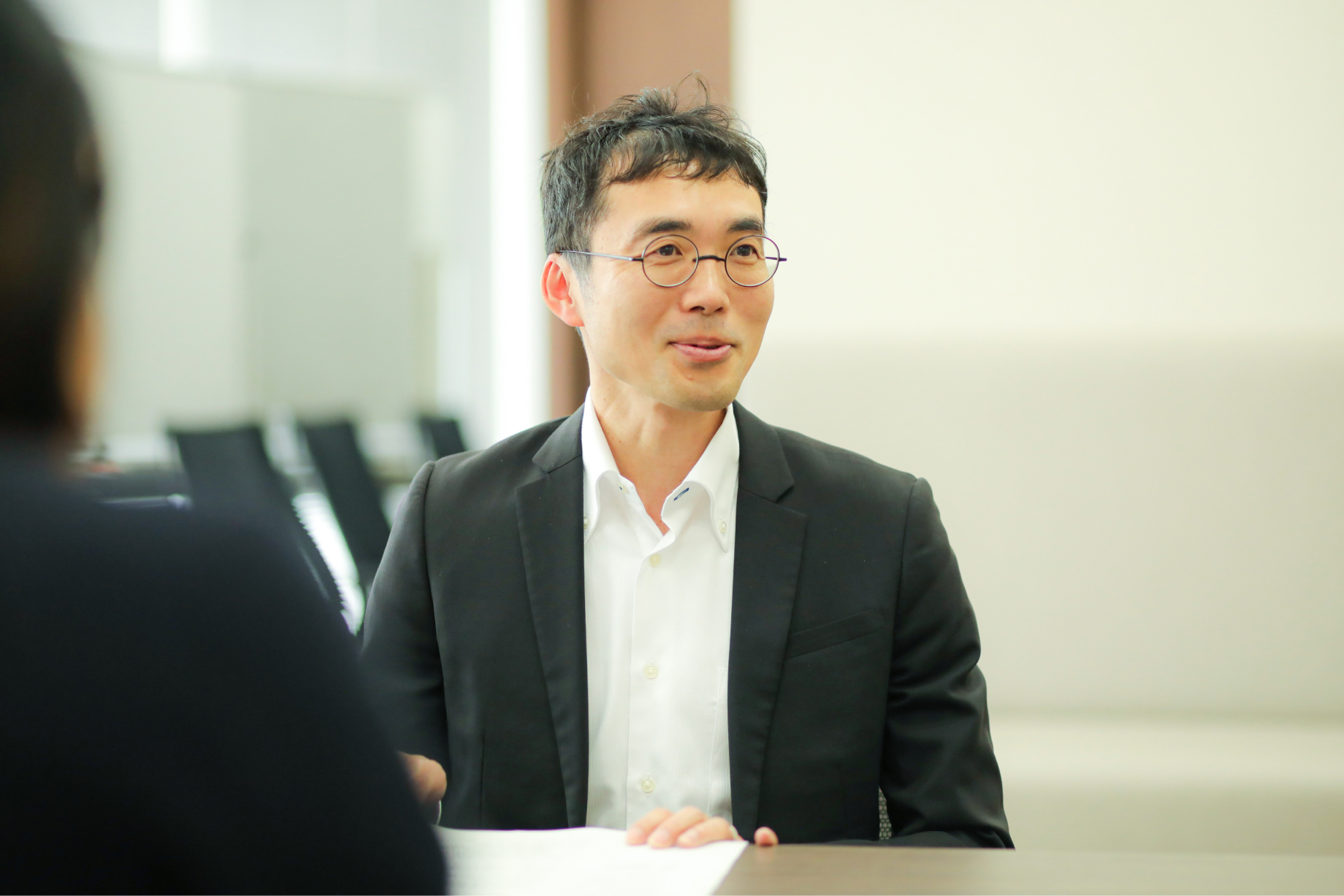
Otsuka Takahiro spoke about the insights JICA gained from participating in this program. He believes that by collaborating with startups, JICA can gather hints for new angles to solve difficult issues.
Tsuboi:
Collaborating side-by-side and exchanging information with other participating startups was another asset. Everyone was serious about solving social issues, so there was a shared mindset.
Takeuchi:
As you expand your business in other countries, do you envision the same horizontal expansion that you experienced in Uganda?
Tsuboi:
While the basic business concepts are the same, each country has different regulatory and administrative frameworks. It's very important to gather adequate information. I am grateful that I am able to exchange information with JICA offices in various African countries and come to understand the local situations.
Takeuchi:
Collaboration with JICA can be very significant when developing a project linked to the government and other authorities.
Tsuboi:
Governments don’t usually deal with small, unknown startups, so it's really hard to get the first project off the ground. But it is completely different if you say, ‘We are a company introduced by JICA.’ It makes all the difference. JICA has connected us with so many people.
Takeuchi:
That’s good to know. I’d also like to make use of my relationship with JICA not only for government projects, but for building networks.
Otsuka:
Japan's ODA (Official Development Assistance) celebrated its 70th anniversary this year [2024]. The success of these ODA efforts in developing countries has built networks of trust in JICA. We would like to continue to provide these networks to startups as a public good. Mr. Kato, do you see this program continuing in the future?
Kato:
In fact, a second program will be held later this year. We hope to make the program even more substantial with lectures on how to approach investors, while at the same time further strengthening our connections to the various stakeholders.
Otsuka:
JICA hopes to continue this program, as it’s a new form of development cooperation that supports the growth of startups. JICA is also focusing on initiatives that are able to quickly collaborate with startups to solve social issues based on an ODA project called JICA DXLab. We’d like to get even more involved with startups and work closely together with them.
Tsuboi:
Startups tend to lack human and financial resources. In many cases, all they have is technology. So, there’s nothing more reassuring than having someone accompany you from the initial start-up phase.
Takeuchi:
When expanding globally, what startups lack is information. JICA is familiar with local businesses, so we would be grateful to work with JICA to come up with strategies specific to each country.
Otsuka:
We hope you’ll continue to visit JICA's local offices near your project sites. It may be useful, and lead to something new. JICA will continue to work with many partners to create opportunities where Japanese startups can shine.
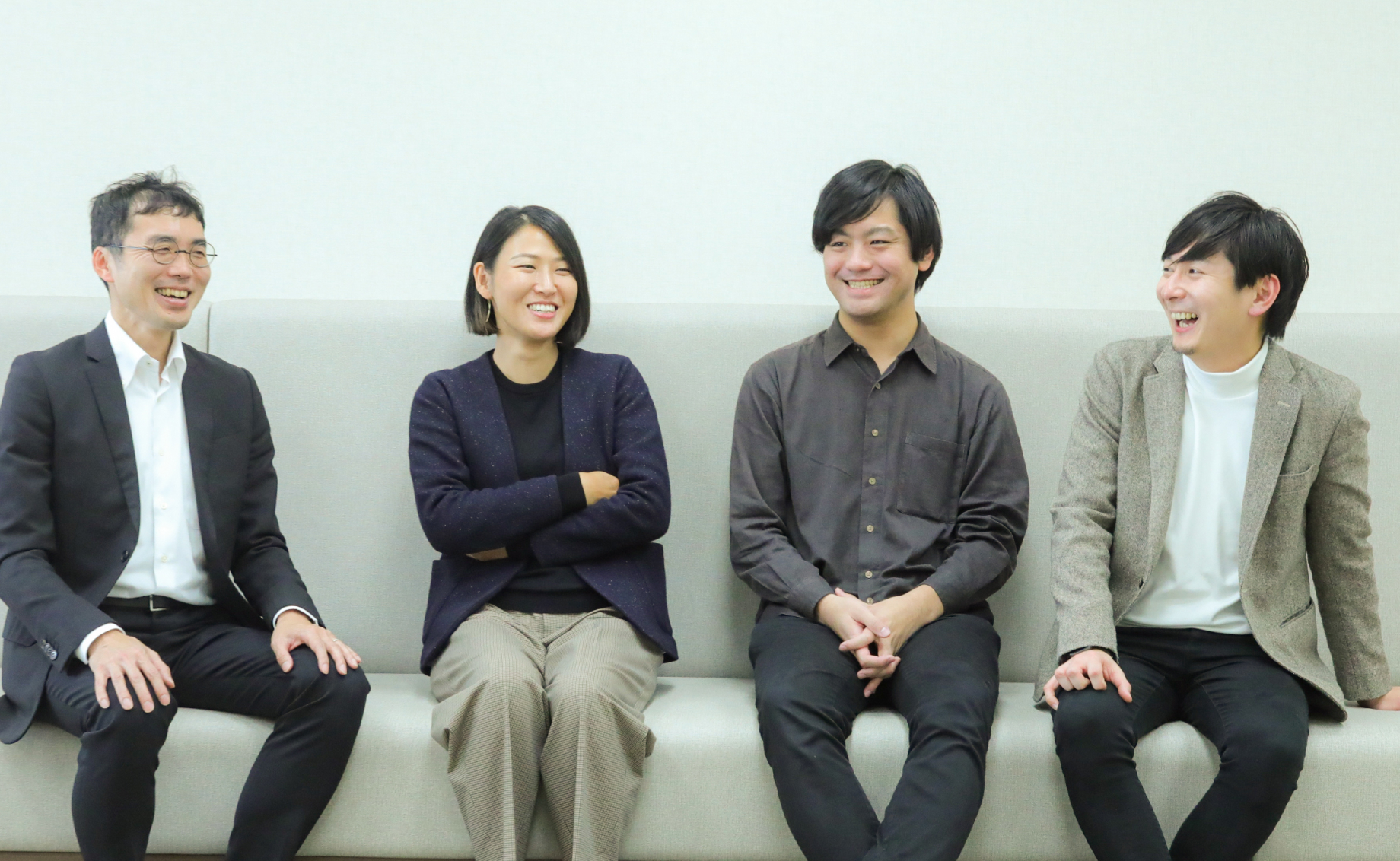
All the interviewees said that they would definitely like to collaborate with JICA in the future.
Interviewed: March 2024
JICA DXLab projects
- CASE STUDIES 5 Satellite Data Used to Predict the Future of the Earth's Environment
- CASE STUDIES 4 Passion for Change! Poverty Reduction through a Unique Financial System
- CASE STUDIES 3 An Innovative Solution to the Global Water Crisis
- CASE STUDIES 2 From Kagawa, Saving Mothers and Children in Asia
- CASE STUDIES 1 A Revolution for a Billion People - Agri-tech Challenges in India
- DX Lab 1 Using AI to Detect Elephants Early and Promote Coexistence with Humans
- INTERVIEWS 2 Challenge in Bhutan! Using Health Data to Promote People’s Health and Wellbeing
- INTERVIEWS 1 Roundtable: Telemedicine Startup × VC × JICA






scroll